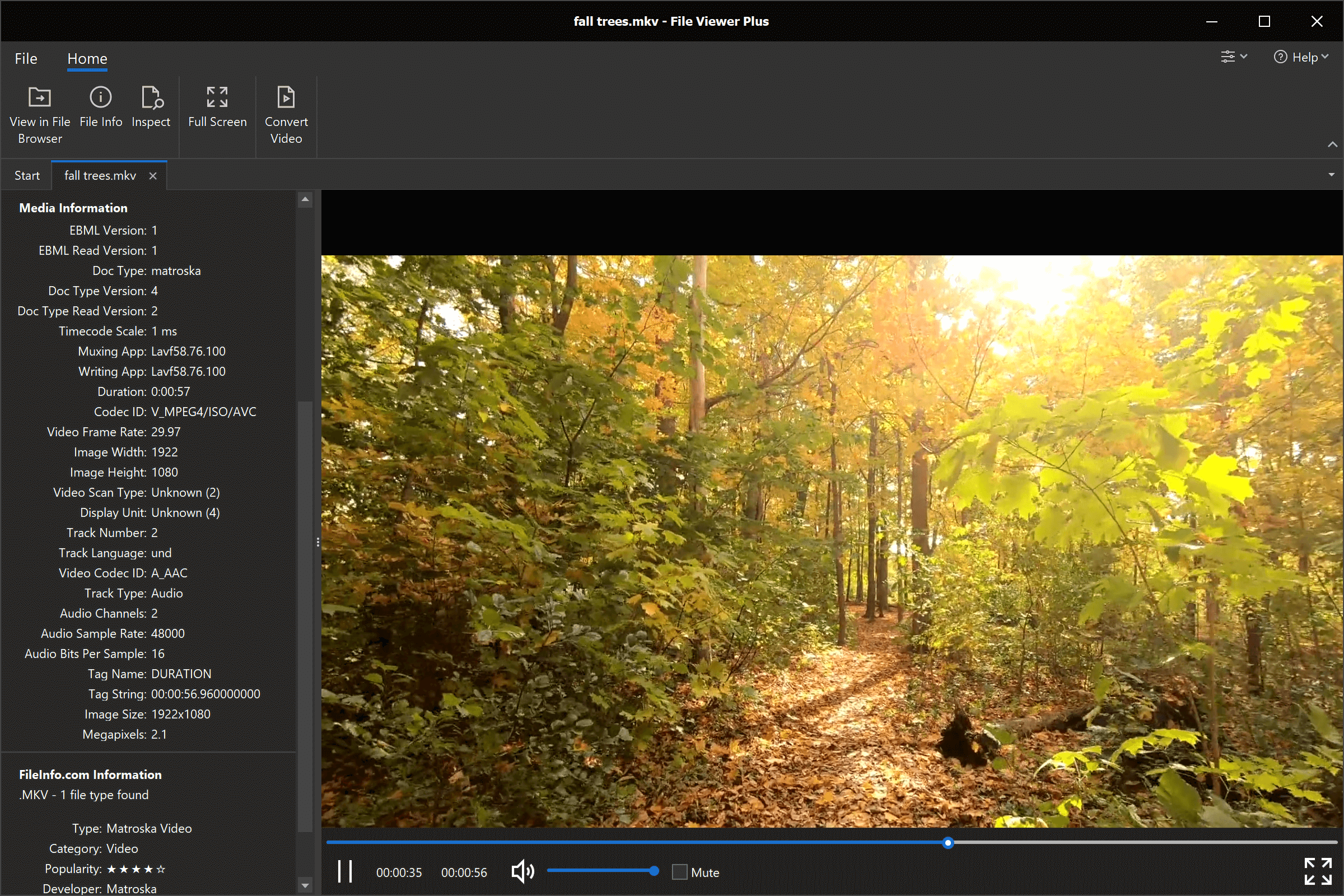What Is MKV Format: A Comprehensive Guide To Understanding And Utilizing MKV Files
In today's digital age, understanding various file formats is essential, especially when it comes to multimedia files. One of the most popular and versatile formats is MKV, which stands for Matroska Video. MKV files have become a go-to choice for users who demand high-quality video and audio playback. But what exactly is MKV format, and why is it so widely used? In this article, we will delve deep into the world of MKV, exploring its features, advantages, and how it can enhance your multimedia experience.
As the demand for high-quality media consumption continues to grow, file formats like MKV are becoming increasingly important. With the ability to support multiple audio tracks, subtitles, and chapters, MKV offers users an unparalleled level of flexibility and control over their media files.
Whether you're a casual viewer or a professional editor, understanding the MKV format can significantly improve your experience. In this article, we will provide a detailed overview of MKV, its benefits, and how you can best utilize it in your daily life.
Table of Contents
- What is MKV Format?
- The History of MKV
- Key Features of MKV Format
- Advantages of Using MKV
- Potential Disadvantages of MKV
- MKV Compatibility Across Devices
- Tools and Software for MKV
- Converting to and from MKV Format
- Optimizing MKV Files for Better Performance
- The Future of MKV Format
What is MKV Format?
The MKV format, short for Matroska Video, is a modern and flexible container format designed to store high-quality video, audio, and subtitles in a single file. Unlike other formats, such as MP4 or AVI, MKV supports a wide range of codecs, making it highly versatile for various types of multimedia content. This adaptability is one of the reasons why MKV has gained immense popularity among users and professionals alike.
Developed by the Matroska development team, MKV is part of the larger Matroska project, which includes other formats like MKA (for audio) and MKS (for subtitles). The format is open-source and royalty-free, ensuring that anyone can use it without legal restrictions.
Key aspects of MKV:
- Supports multiple audio tracks and subtitles
- Compatible with a variety of codecs
- Offers advanced features like chapters and metadata
The History of MKV
The origins of the MKV format date back to 2002 when the Matroska project was first initiated. The goal was to create a universal multimedia container that could accommodate all types of media files in a single, efficient package. Over the years, the format has evolved significantly, incorporating new features and improving compatibility with modern devices and software.
Key Milestones in MKV Development
- 2002: The initial release of the Matroska project
- 2003: Introduction of the MKV format for video files
- 2010s: Widespread adoption across media players and devices
Today, MKV remains one of the most widely used formats for storing and sharing high-quality media content.
Key Features of MKV Format
One of the standout features of the MKV format is its ability to support multiple audio tracks, subtitles, and chapters within a single file. This makes it an ideal choice for users who want to enjoy their media content in multiple languages or with additional features like commentary tracks.
Advanced Features of MKV
- Support for various video and audio codecs
- Inclusion of multiple subtitle formats
- Ability to embed metadata and chapters
These features make MKV a powerful tool for both casual viewers and professional editors, providing a seamless and customizable media experience.
Advantages of Using MKV
The MKV format offers numerous benefits that set it apart from other multimedia containers. Below are some of the key advantages:
- High-Quality Playback: MKV supports advanced codecs, ensuring top-notch video and audio quality.
- Flexibility: Users can include multiple audio tracks, subtitles, and chapters in a single file.
- Open-Source: Being open-source, MKV is free to use without licensing fees.
These advantages make MKV a preferred choice for many users who prioritize quality and versatility in their media files.
Potential Disadvantages of MKV
While MKV offers many benefits, it does have some potential drawbacks that users should be aware of:
- Compatibility Issues: Some older devices and software may not support MKV natively.
- Larger File Sizes: Due to its support for multiple tracks and features, MKV files can sometimes be larger than other formats.
However, these limitations are often outweighed by the advantages, especially as more devices and platforms continue to adopt MKV support.
MKV Compatibility Across Devices
One of the most important considerations when using MKV is its compatibility with different devices and software. Fortunately, MKV is supported by a wide range of media players, including VLC, MPC-HC, and PotPlayer, as well as popular streaming platforms like Kodi.
Popular Devices Supporting MKV
- Smart TVs
- Streaming devices (e.g., Roku, Chromecast)
- Modern smartphones and tablets
While some older devices may require additional software or conversion, the widespread adoption of MKV ensures that most users can enjoy their files without issues.
Tools and Software for MKV
To fully utilize MKV files, users can take advantage of various tools and software designed specifically for this format. Below are some of the most popular options:
- VLC Media Player: A free and open-source player that supports MKV and many other formats.
- HandBrake: A versatile video converter that can encode and decode MKV files.
- MKVToolNix: A powerful toolkit for creating, editing, and splitting MKV files.
These tools provide users with the ability to manage their MKV files effectively, ensuring a smooth and enjoyable experience.
Converting to and from MKV Format
While MKV is a versatile format, there may be times when users need to convert their files to or from MKV. This can be done using various software tools, such as HandBrake or FFmpeg. Conversion allows users to optimize their files for specific devices or platforms that may not support MKV natively.
Steps to Convert MKV Files
- Choose a reliable conversion tool
- Select the MKV file you want to convert
- Choose the desired output format
- Start the conversion process
By following these steps, users can easily convert their MKV files to other formats as needed.
Optimizing MKV Files for Better Performance
To ensure optimal performance, users can optimize their MKV files by adjusting settings such as resolution, bitrate, and codec. This can help reduce file size while maintaining high-quality playback.
Tips for Optimizing MKV Files
- Use efficient codecs like H.264 or H.265
- Adjust resolution and bitrate based on device capabilities
- Remove unnecessary tracks or subtitles
By optimizing their MKV files, users can enjoy smoother playback and faster loading times.
The Future of MKV Format
As technology continues to advance, the MKV format is likely to remain a staple in the world of multimedia. With ongoing improvements in codecs and device compatibility, MKV is well-positioned to meet the demands of future users.
Furthermore, the open-source nature of MKV ensures that it will continue to evolve and adapt to new trends and technologies in the digital landscape.
Conclusion
In conclusion, the MKV format offers a powerful and versatile solution for storing and sharing high-quality multimedia content. With its ability to support multiple audio tracks, subtitles, and advanced features like chapters and metadata, MKV has become a favorite among users and professionals alike.
We encourage readers to explore the world of MKV and discover how it can enhance their media experience. Don't forget to leave a comment or share this article with others who may find it useful. For more information on MKV and other digital formats, be sure to check out our other articles on the site.
References:

emxxve (bangsad.mkv) • Threads, Say more

Open .MKV Files with File Viewer Plus

What Is MKV Format and How To Play MKV Video?